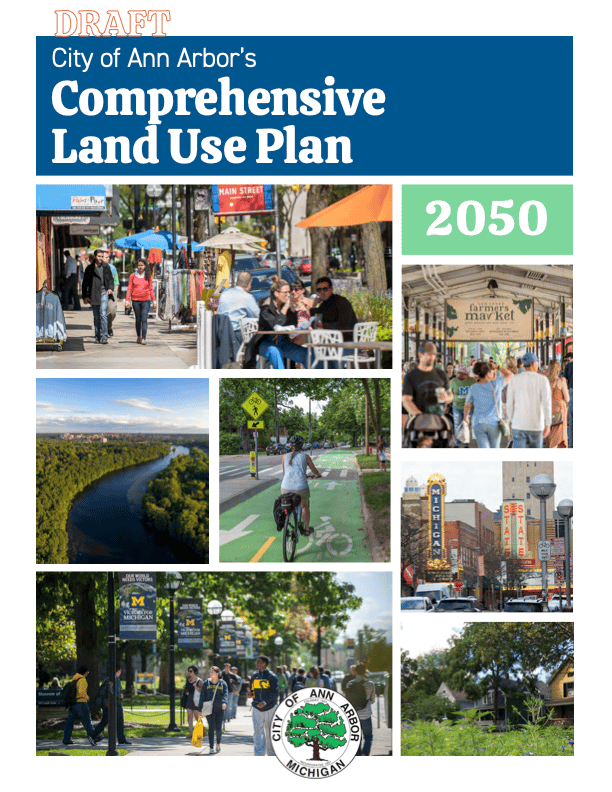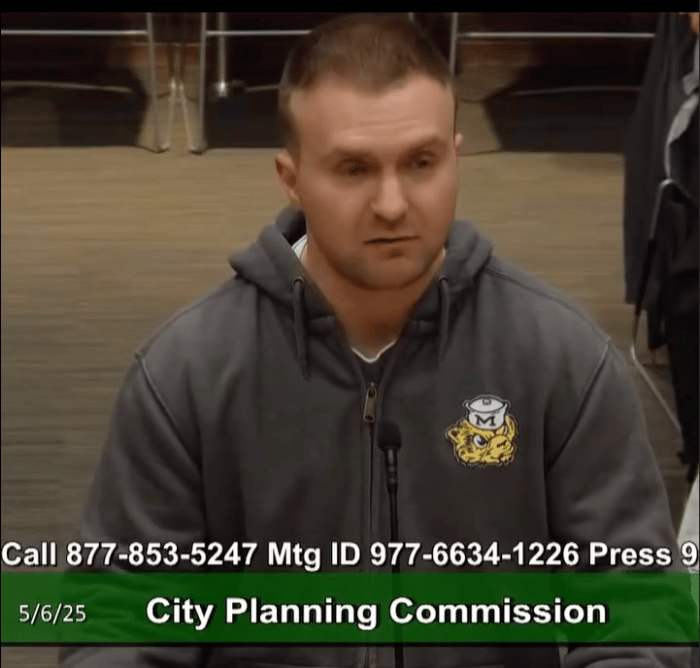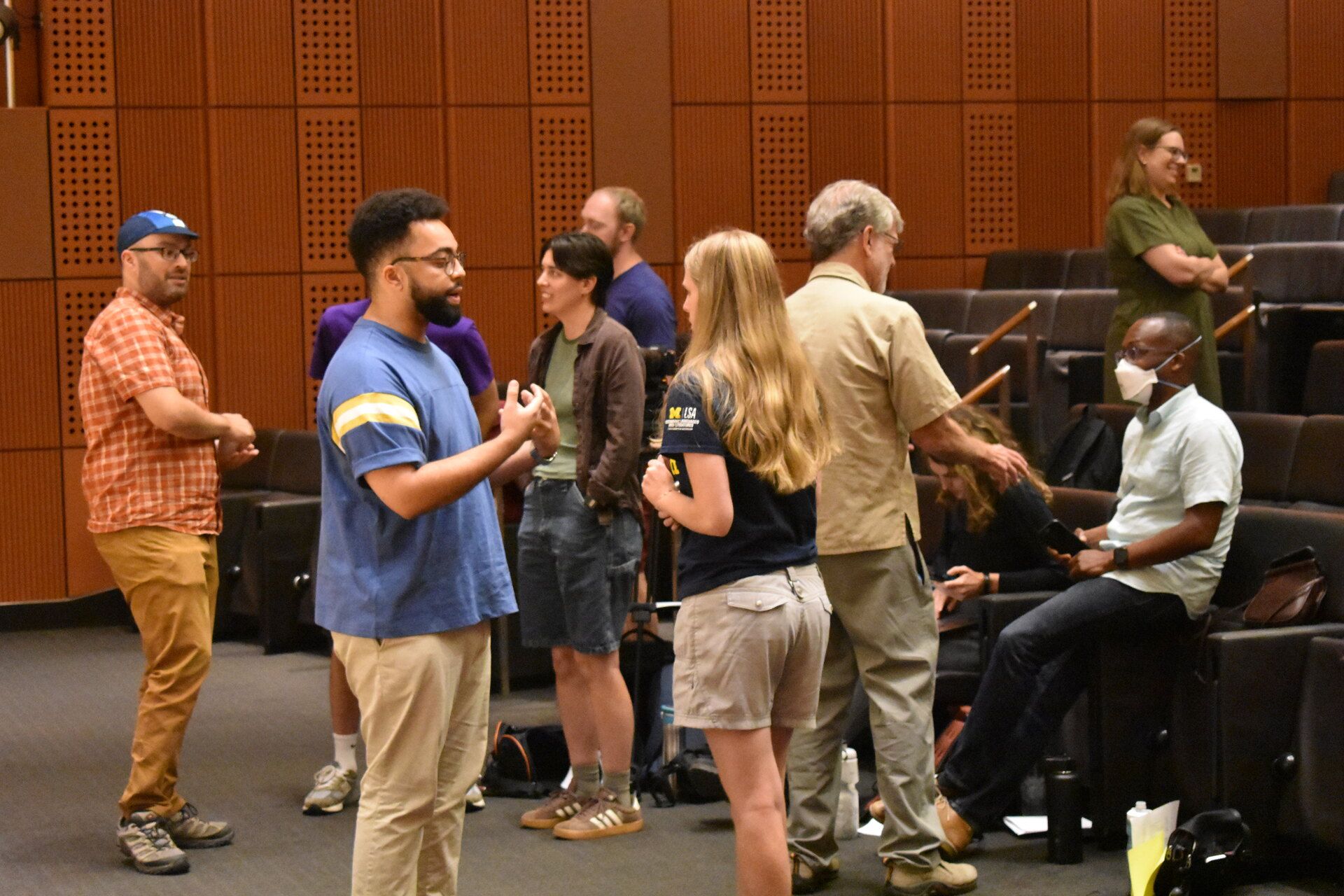- Neighbors for More Neighbors Ann Arbor
- Posts
- Housing Stability is No Trick! 👻 Treat Your Community to a Great 2050 Vision
Housing Stability is No Trick! 👻 Treat Your Community to a Great 2050 Vision
An update from Washtenaw Housing Alliance, the CLUP final draft is out, and a transportation story 🚌
🛌 Partner Spotlight: Washtenaw Housing Alliance - The Fight to Keep Our Neighbors Housed
We are proud to stand with the Washtenaw Housing Alliance (WHA), whose critical work directly supports our mission of creating a more inclusive and stable community. The WHA is the leader for our local Continuum of Care (CoC), a coalition of non-profits and government agencies that provides vital housing and services to our neighbors experiencing homelessness.
The Threat to Permanent Housing: A Crisis for Our Community
The WHA has issued an urgent warning: Anticipated federal policy changes from the Department of Housing and Urban Development (HUD) are proposing new restrictions that could severely threaten our community's ability to house our most vulnerable residents.
The Proven Solution is at Risk: For years, Washtenaw County's CoC has prioritized Permanent Supportive Housing (PSH) and Rapid Re-Housing (RRH)—proven, cost-effective models that provide stable housing and services to help people exit homelessness for good. Last year alone, local organizations like Avalon Housing, SOS Community Services, and Ozone House moved 465 people (158 households) into permanent housing using this federal funding.
A Devastating Cap: The proposed changes would cap CoC funding for Permanent Housing at 30%. For Washtenaw County, which currently directs 94% of its CoC funding to these proven, long-term solutions, this cap would be devastating. The WHA warns that these cuts could result in more than 800 local individuals and families losing their housing and supportive services.
While Neighbors for More Neighbors focuses on local policy, this issue profoundly impacts the core of what we stand for: creating a more affordable and equitable community for everyone.
Affordability: Permanent Supportive Housing and Rapid Re-Housing are evidence-based, cost-effective solutions. By preventing a return to the streets, they reduce the community-wide costs associated with repeated reliance on expensive emergency services like hospitals, jails, and emergency shelters. Preventing homelessness is fiscally responsible for all taxpayers and makes our entire local system more efficient.
Equity: Homelessness is fundamentally a housing problem driven by systemic issues like poverty and a lack of affordable homes. The WHA's work ensures that our most vulnerable residents, regardless of disability or life circumstances, have access to the basic human right of stable housing. A community that ensures all its members are housed is a stronger, more just, and more neighborly community.
This potential federal change threatens to reverse decades of local progress and push hundreds of our neighbors back into homelessness.
If you wish to take action on this national policy issue, please visit the National Alliance to End Homelessness' advocacy hub, which is being shared by the Washtenaw Housing Alliance, to contact your representatives.
🔉 Give Your Final Feedback on Ann Arbor's 2050 Vision!

Ann Arbor is wrapping up the process to create the Comprehensive Land Use Plan. This is your last chance to make your voice heard! The final draft is now available for review and comment through Monday, January 5, 2026.
Visit the project page and submit your comments using the online form. Using the form ensures the Planning Commission and City Council get a complete, compiled list of all community feedback.
After the comment period closes, public hearings will be scheduled in early 2026 for the final adoption of the plan.
👨👦 Neighbor Spotlight: Commuters
We are so excited to continue to look at how different neighbors feel about the Comprehensive Land Use Plan (CLUP). This week, we are focusing on commuters. Hear what Joe Zilka had to say at a City Council meeting back in May:

“Everday I take the bus to work; I can’t overstate how much that has improved my day-to-day quality of life. I still do own a car, but I rarely use it anymore. I have saved thousands of dollars—money that doesn’t go towards gas, insurance, tires, oil changes—and [spending] that money back into the local economy. At small businesses, at local restaurants, at local events, and not spending it on parking either, or sitting in traffic, worrying about my next oil change or my next fill up.
Beyond that, I’ve experienced real mental health benefits. It’s less stress, more time to think, maybe read, chill out, whatever! This lifestyle really works, and Ann Arbor is one of the few cities in Michigan where I’m able to live this way. And I’m not alone. Everyday at my stop… there are dozens of my neighbors that join me on the bus to get to work, school, events, and more.
As everyone here is probably aware, we passed a large bus millage in 2022 and we are now seeing the positive results move in. Routes like mine on Industrial, Washtenaw, Plymouth, State, Jackson, and more, are already offering frequent and reliable bus service, and developments such as Packard Road next to Fraser's Pub are already showing us what this type of development can look like: housing that’s walkable, transit oriented, fits into the neighborhood fabric, but still allows for a car if you want it. If we expand this type of housing along our high frequency transit corridors that makes Ann Arbor more accessible. Not just for those who can afford to live downtown, but for teachers, police officers, firefighters, hospital workers, grad students, restaurant staff, retail employees; people who make this city run; they have the freedom to live further away from downtown like I do, pay less in rent as a result like I do, and still get to work, campus, events, jobs, and economic opportunity, more quickly and affordably…
…This is about people, this is about economic mobility, environmental sustainability, and mental wellbeing. I’m living proof that when a city supports transit-oriented living, people thrive.”
☑️ Take the very short 2025 Transportation Survey
Make your thoughts on transportation heard with the 2025 Transportation Survey. This is your chance to share feedback on how you get around the city—whether you walk, bike, drive, or take the bus (like Joe!) Your input is vital for the Vision Zero plan, which aims to make our streets safer and more accessible for everyone.
This year’s survey will wrap up on October 31st, so be sure to take just a few minutes to make your voice heard. Let your voice shape the future of transportation in Ann Arbor. 🚲🚗🚌
📳 Communications Committee Kickoff

Ready to help spread the word about More Neighbors? We're inviting you to join our Communications Team! We're kicking off with a meeting to discuss our plans, and we need your input. If you've got skills and ideas for how we can reach more of our neighbors, this is your chance to share them and dream up new ways to get our message out. Join us on Monday, October 27th from 8:15-9pm on Zoom.
—The Neighbors For More Neighbors A2 Team
🖥️ moreneighborsa2.org | Sign the Petition | | Donate (designate More Neighbors A2) | Order a T-Shirt | Facts
Questions? Don’t hesitate to reach out to us at [email protected]
Support in one Second: Forward this email to your friends and neighbors.